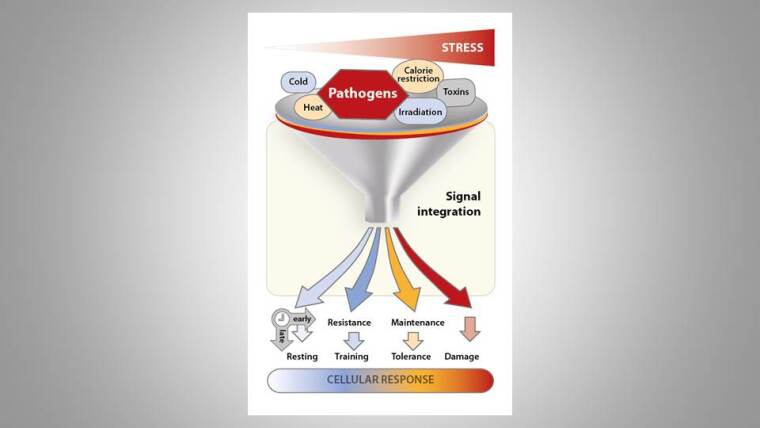CRA 3 Inflammatory Stress
Coordinator: Michael Bauer
Exposure of higher organisms to pathogens provokes inflammatory stress. Adaptive responses of pathogen challenged cells and organs comprise opposing resistance and tolerance reactions. While hitherto the nature of the pathogen was thought of prime importance for causing specific response patterns, recent findings reveal key role of pathogen dose in defining these opposing effects. Furthermore, environmental stressors impact significantly these pathogen-induced responses.
As a working hypothesis CRA3 follows the idea that pathogens, like other stressors, provoke hormetic responses of the affected cells. This concept could explain the tight interplay of dose-related effects of pathogens and other stressors in infectious diseases (Figure; adapted from Bauer et al. Trends in Immunology 2018). Signaling events underlying these responses to pathogens are at best incompletely understood but carry potential to favourably influence the course of inflammatory diseases that reflect an enormous socioeconomic burden.
In CRA3, we propose to study time and dose-dependent signalling events explaining the altered response patterns in inflammatory stress events. Resistance and tolerance phenomena involve PI3K-, mTOR-, and AMPK-dependent signalling reactions, concomitantly altered transcription patterns, as well as epigenetic marks. Understanding the underlying mechanisms would offer novel avenues to prevent disease progression in infectious and inflammatory conditions.
